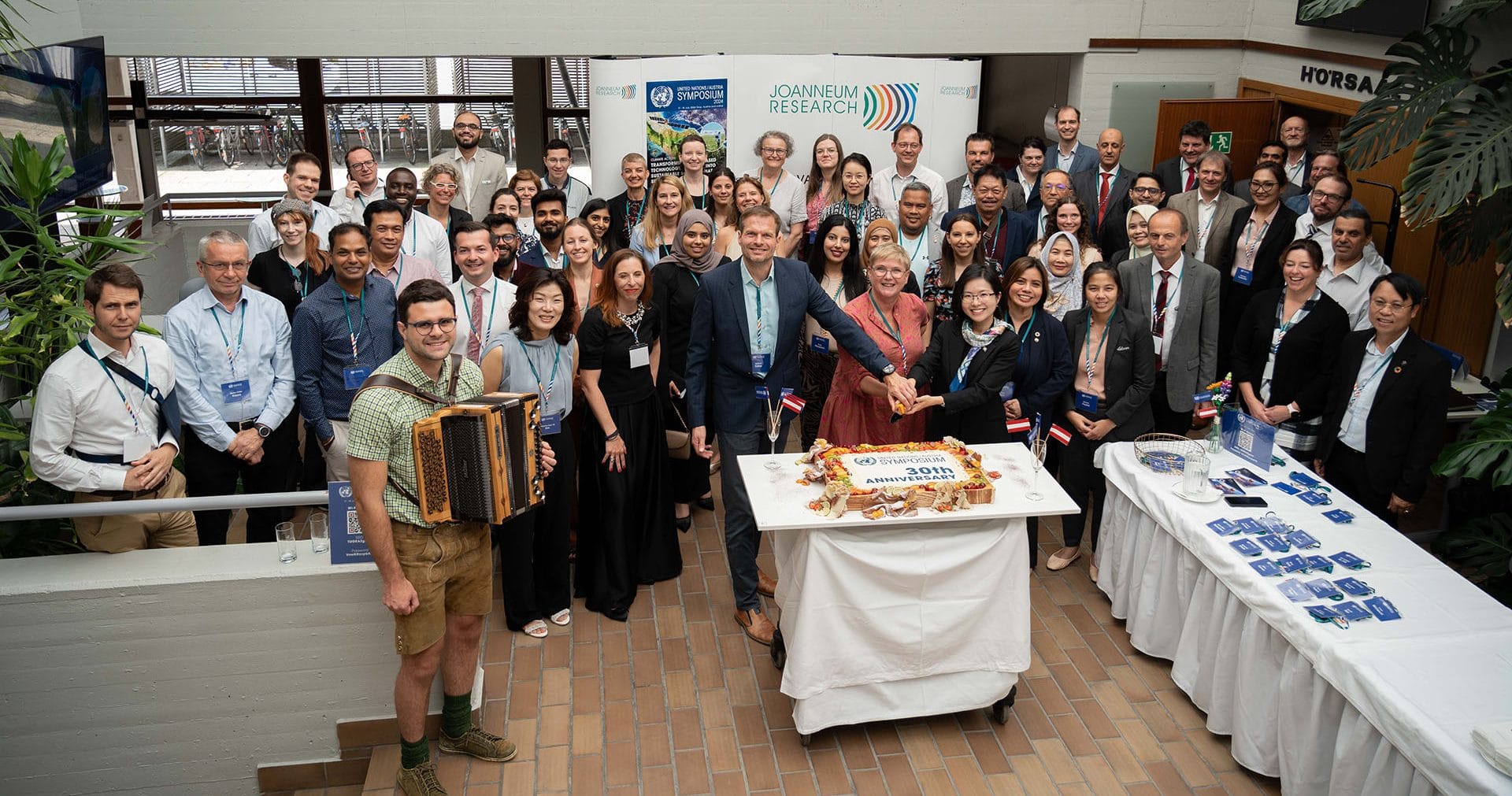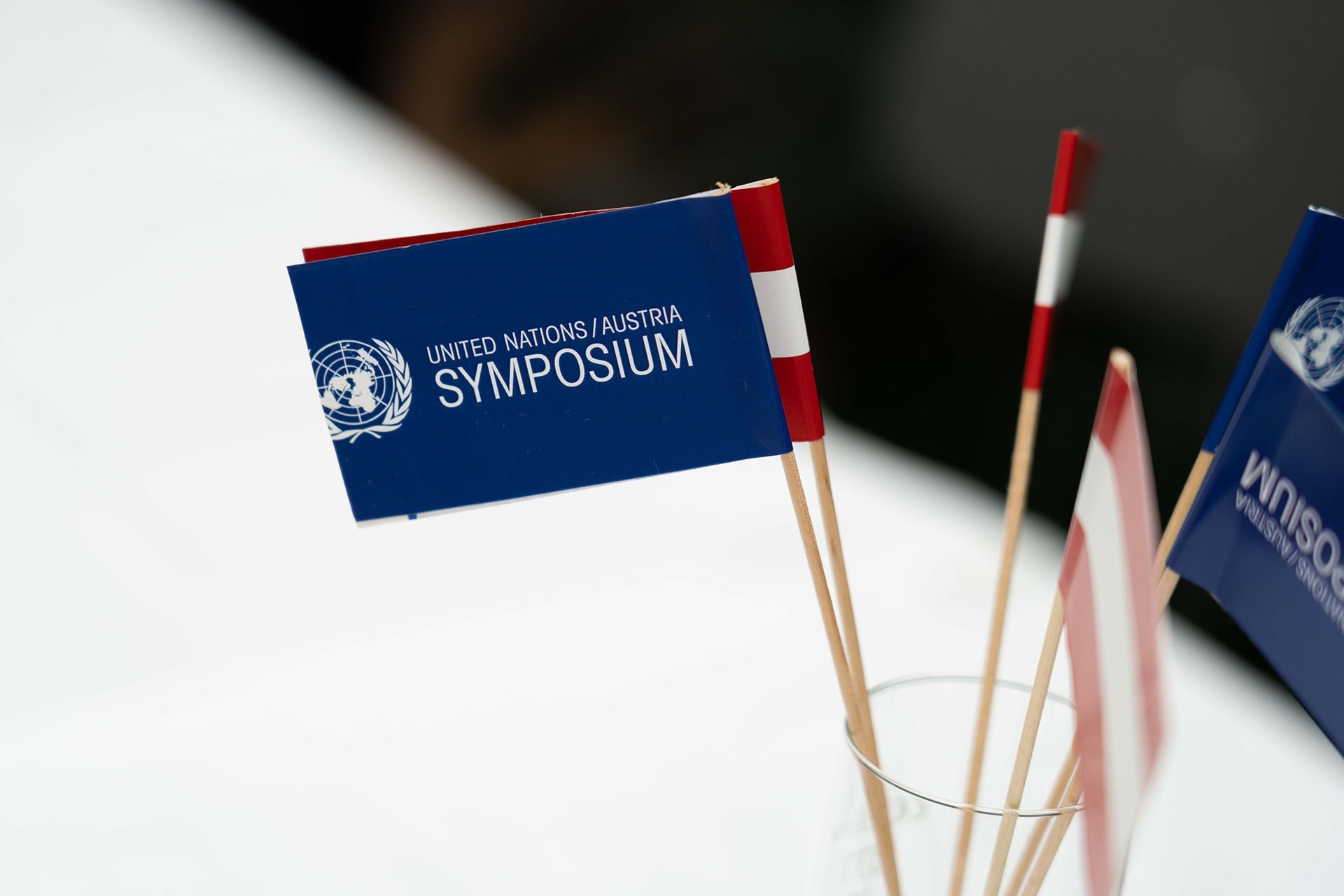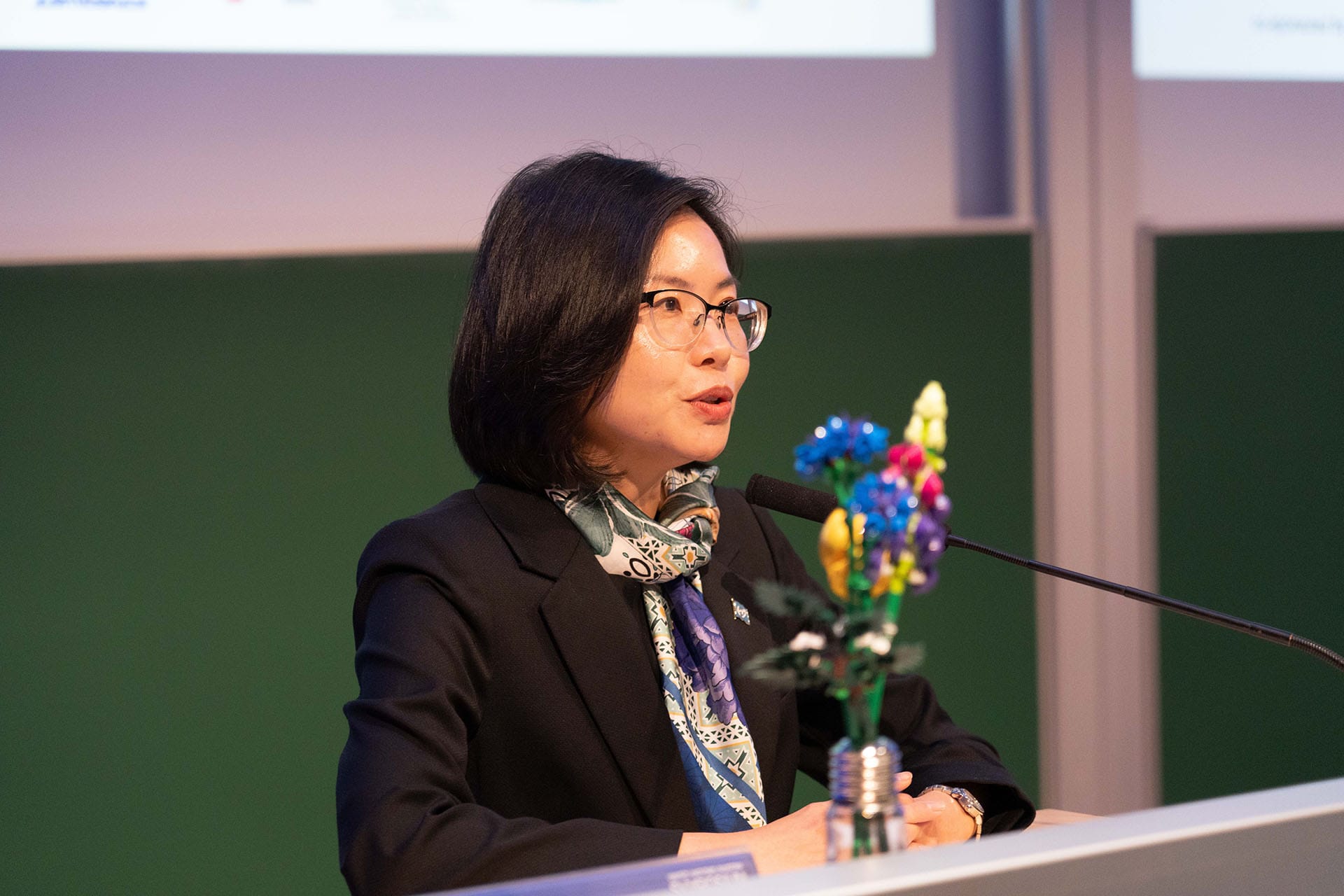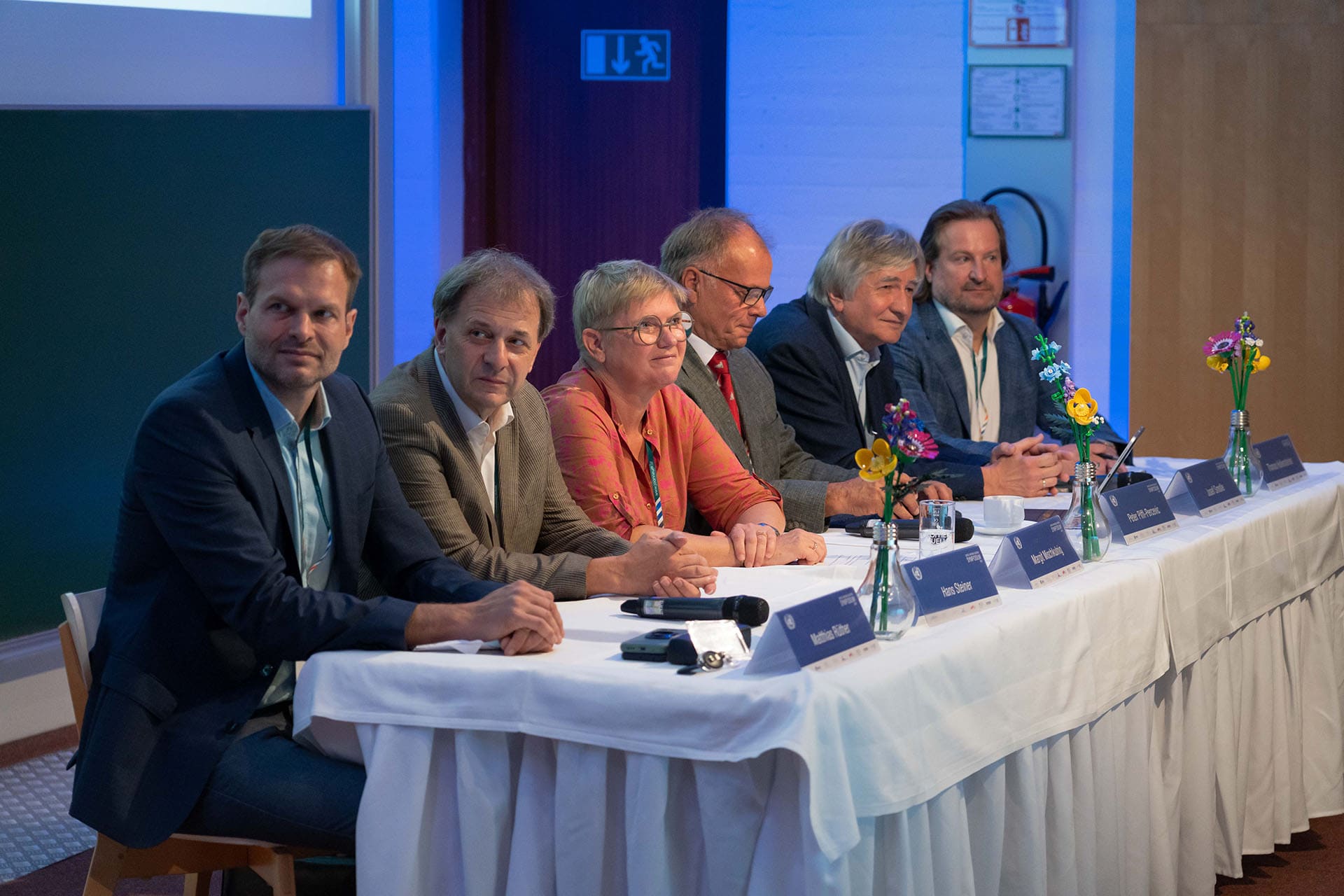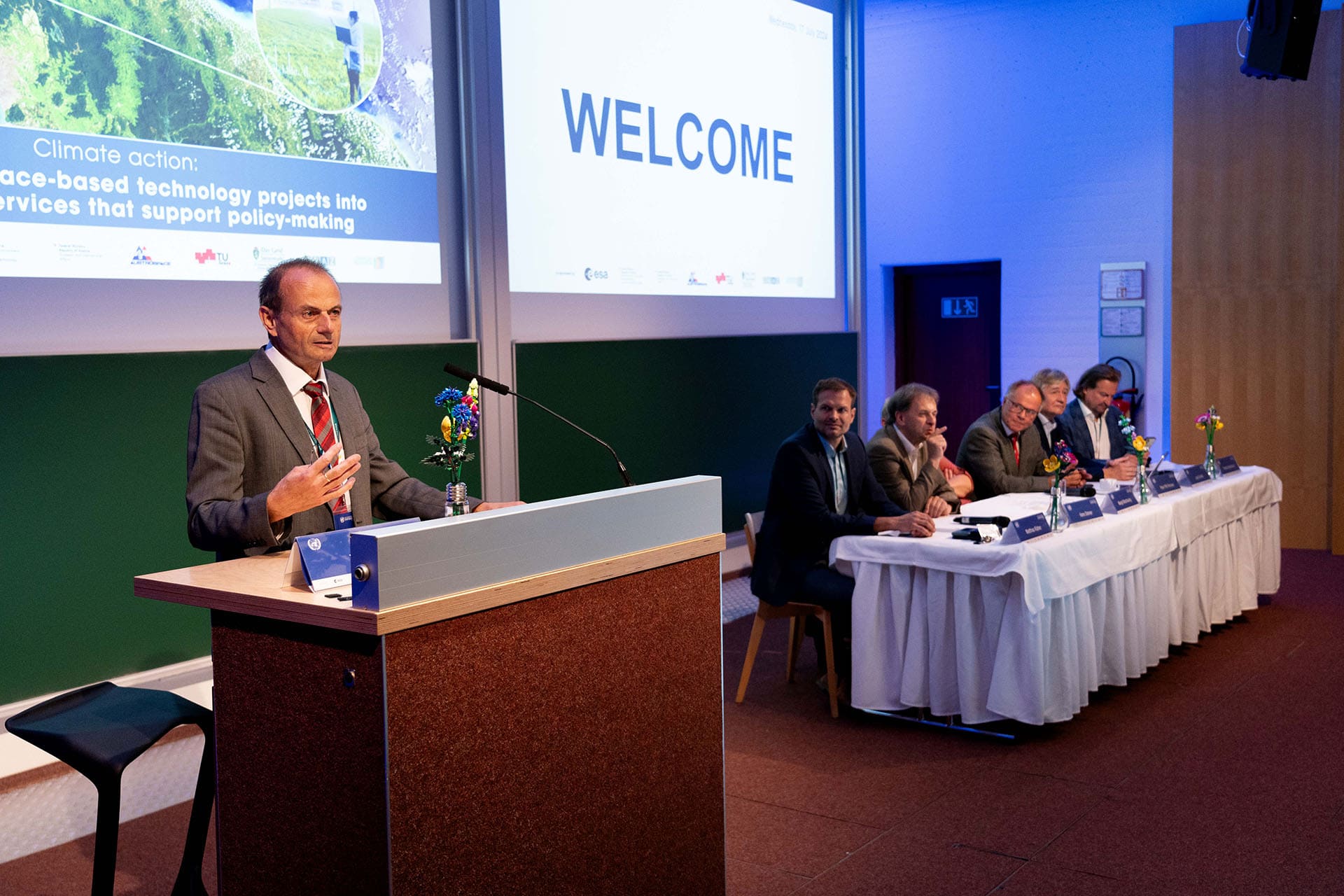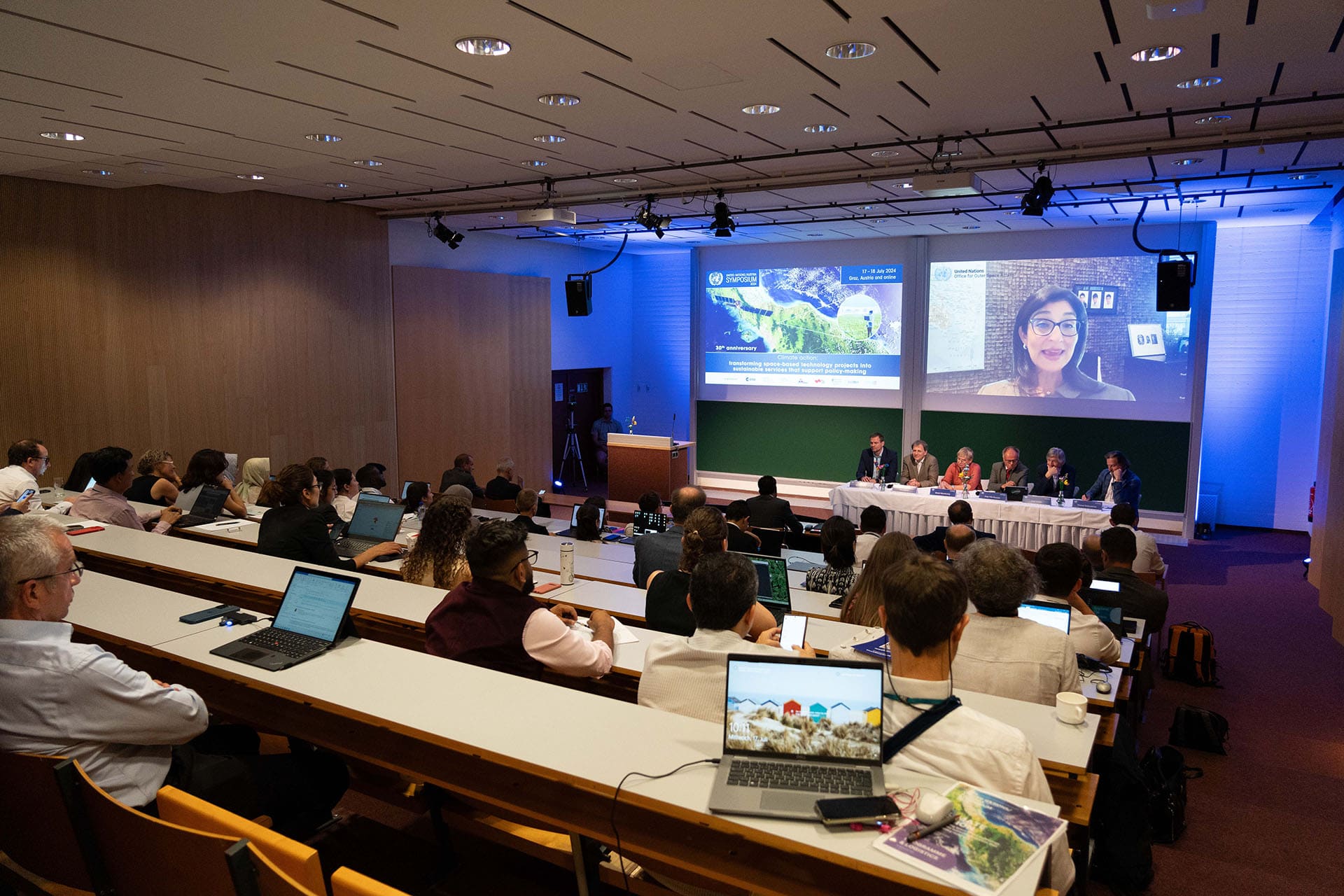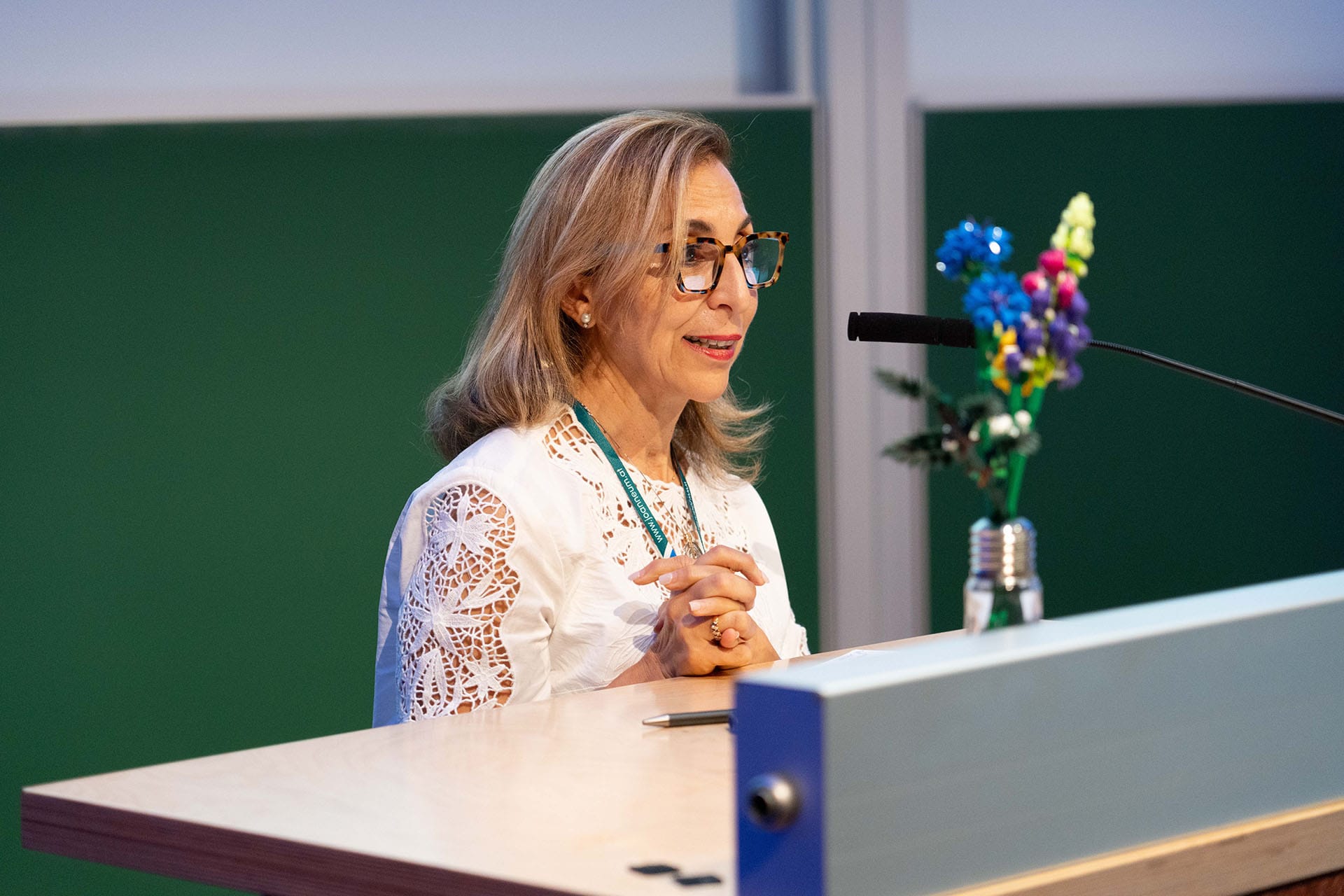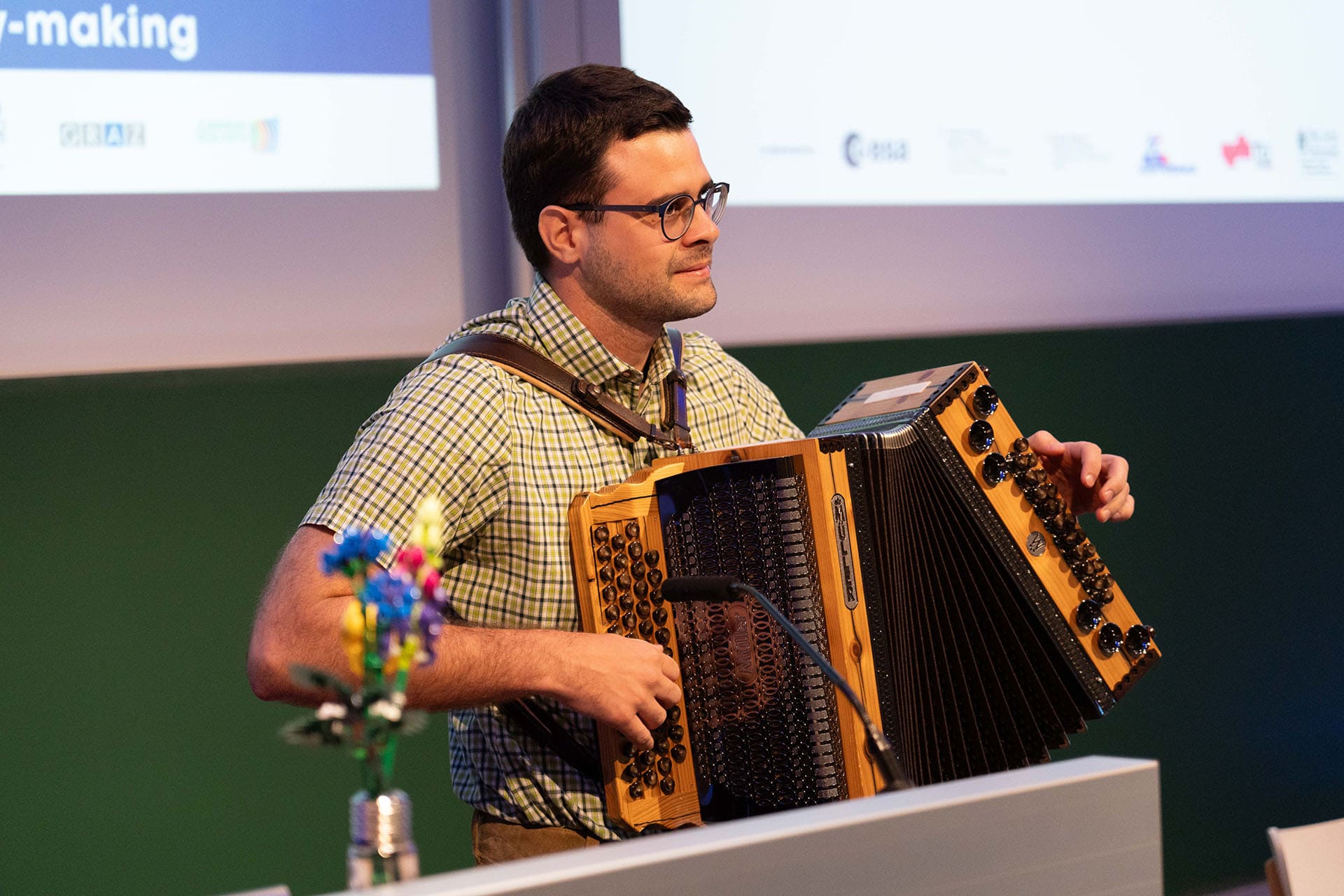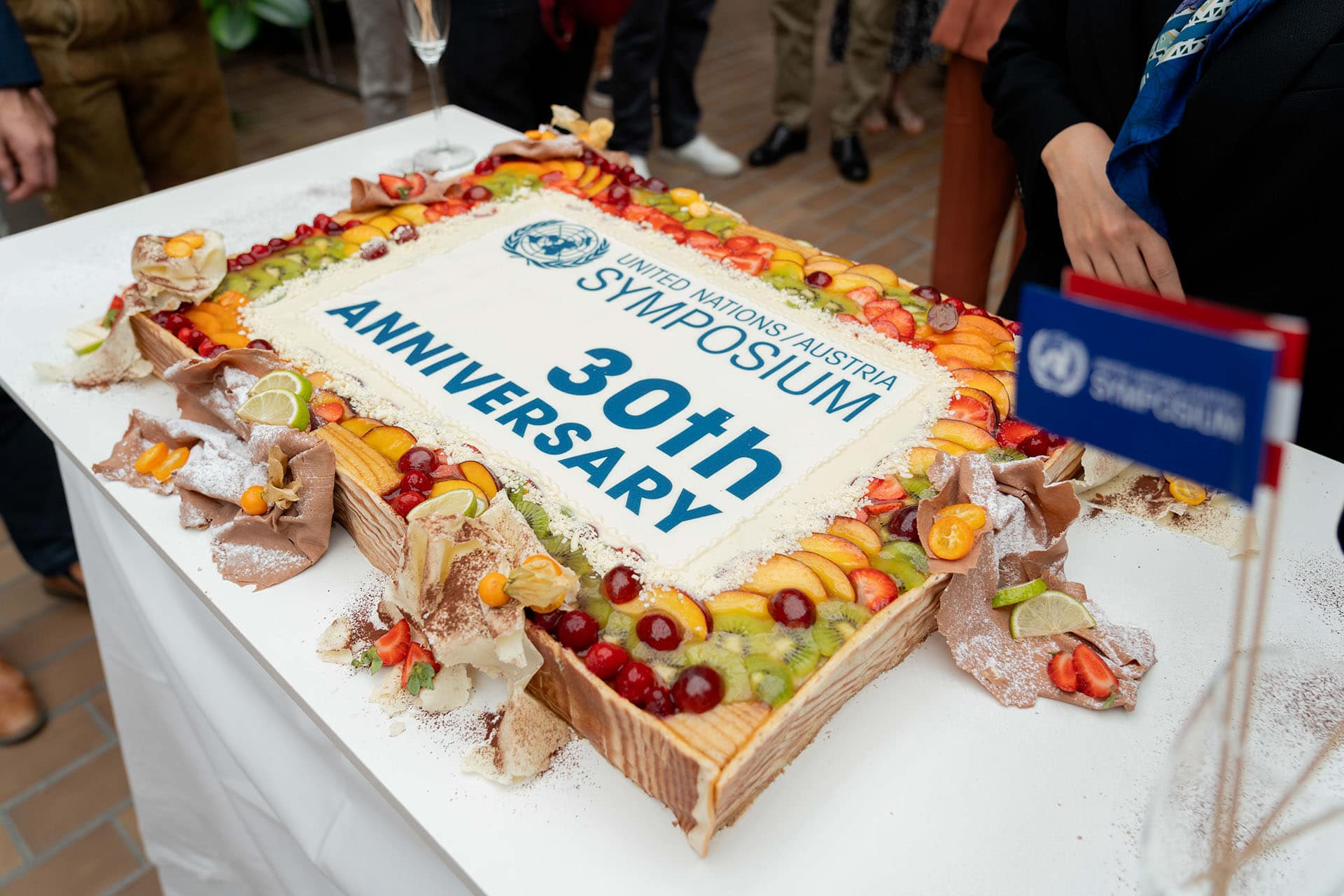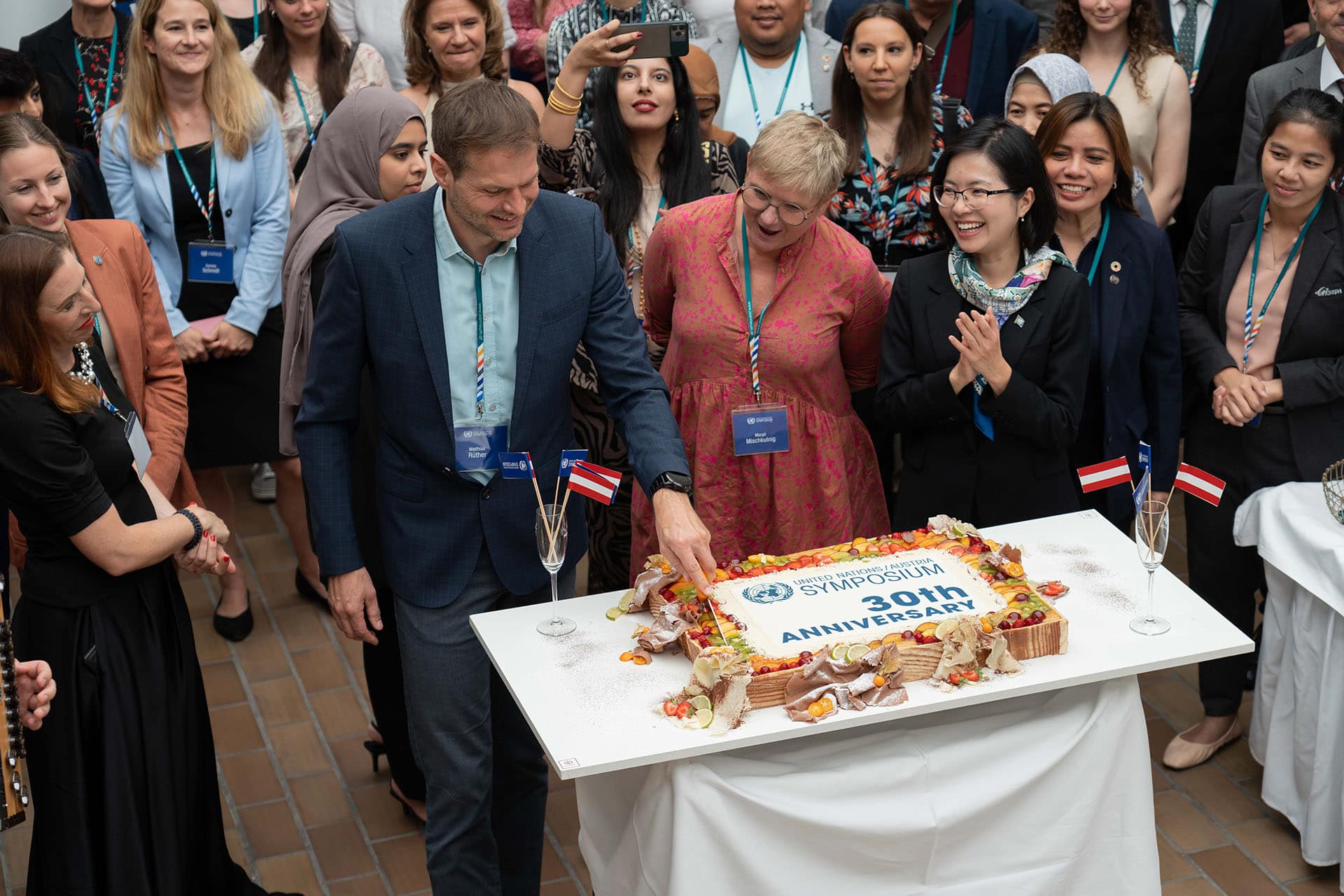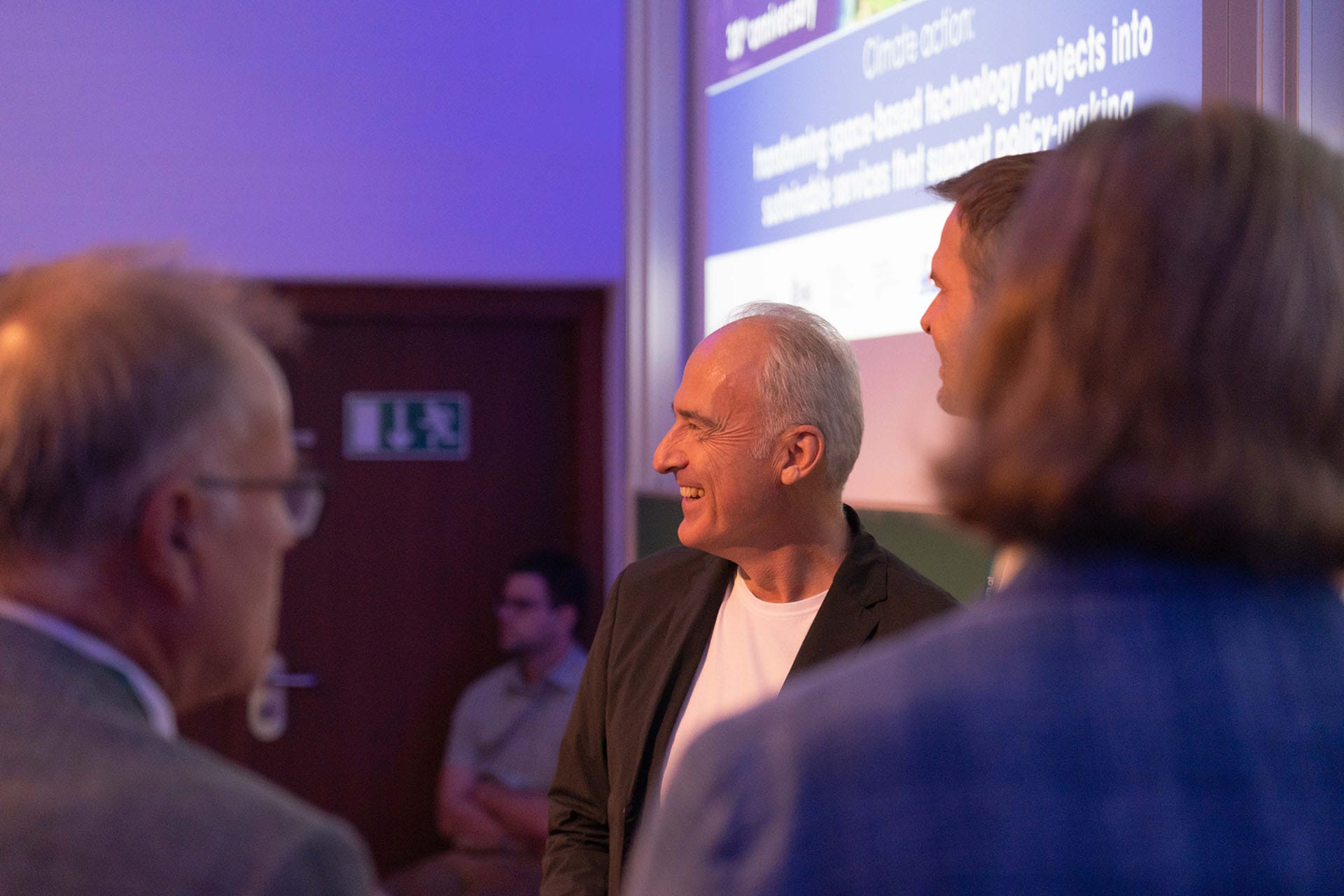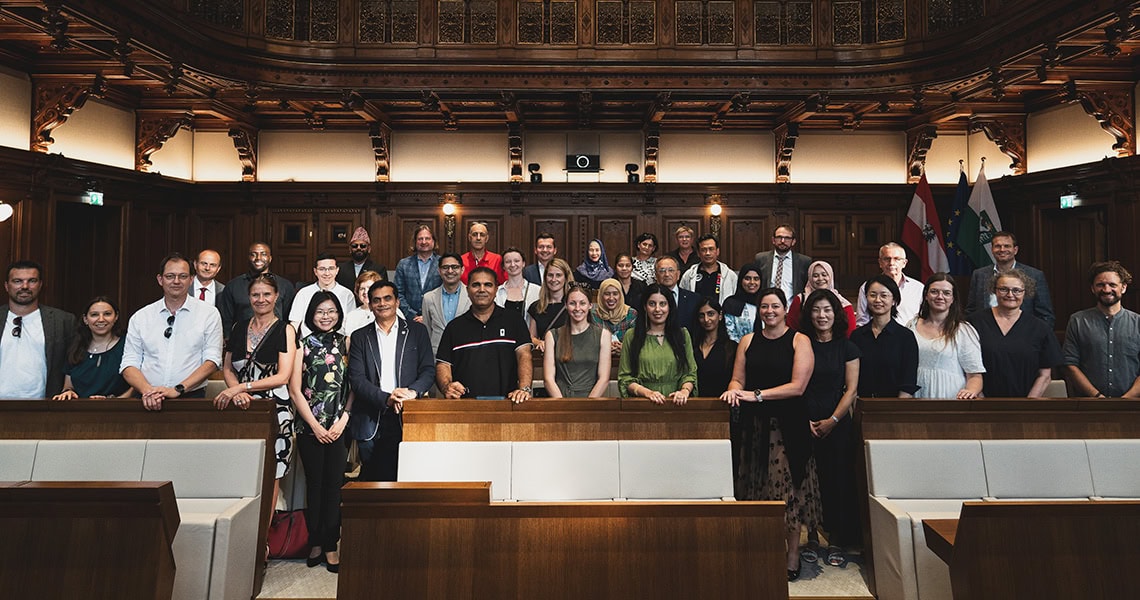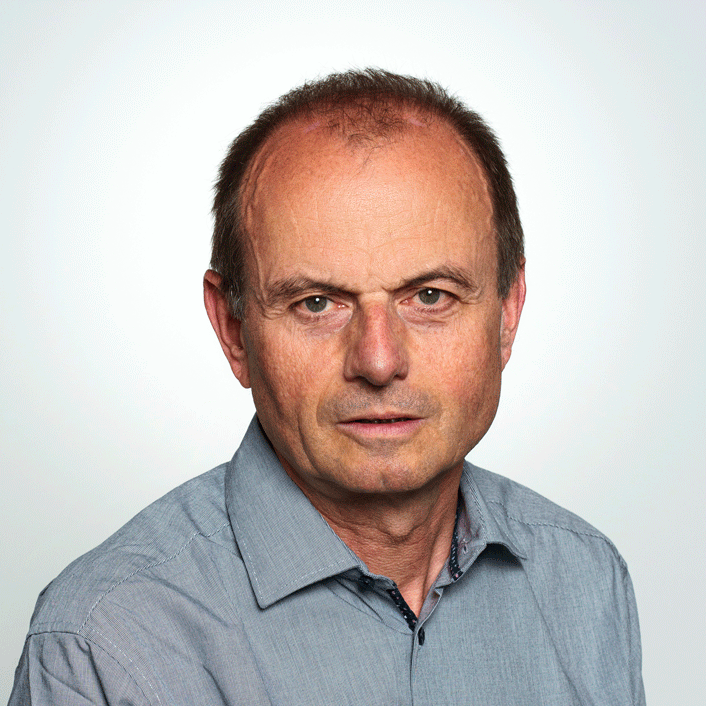The aim is to facilitate the transition from technical space projects to sustainable services that support climate protection. This requires global initiatives, as demonstrated by the diversity of speakers from Austria, France, Mongolia, Morocco, India, Nepal, Italy, Bulgaria, China, Pakistan, Indonesia, Thailand, Spain, Bangladesh, Costa Rica, Kenya and Egypt. The programme included keynotes, panel discussions, project presentations, video pitches and networking events. Successful case studies from the countries and funding opportunities were also presented.
United Nations as a forum for promoting positive contributions to society and global development
The patron of the event was Michael Schönhuber, Head of the DIGITAL Telecommunications, Navigation and Signal Processing Research Group. Also present were Managing Director Heinz Mayer and DIGITAL Director Matthias Rüther, who was part of the opening committee.
Michael Schönhuber was available for a brief interview during the international symposium:
What do you think space technologies can do to reduce the impact of climate change?
Schönhuber: ‘Space technologies essentially have four very important aspects:
- Understanding the interrelationships: There are many interrelationships on the Earth's surface and in the atmosphere that can only be understood by observing them from satellites.
- Documenting the status quo and development. There are many parameters that can best be observed and recorded from satellites. These include, for example, the temperature of the earth's surface, especially the sea, the condition of the forest, the utilisation of land areas, building development and sealing. All of this can be documented well on a global scale using satellite technology.
- Satellite technology can be used to influence ongoing operational matters, such as the optimisation of traffic routes. If, for example, flight routes are not optimised, there is a risk that commercial aircraft will fly tens of kilometres too far. Satellite navigation and terrestrial coordination can also be used to optimise transport routes on land and at sea.
- Mitigating and combating the negative effects of climate change, such as monitoring and detecting forest fires. In remote areas, it is impossible to constantly monitor the forest using fire wardens, terrestrial observation and sensor technology. Here, too, satellite technology can make a major contribution. At the symposium, colleagues from Indonesia presented how they use satellite technology to monitor forests and detect forest fires.’
The UN/ A Symposium took place for the 30th time this year. Why is it important to be there?
Schönhuber: ‘As a research organisation, it is important to us to make a contribution to the positive global development of our society. This is what we stand for with our expertise. The expertise that is in demand here at this symposium is in the field of satellite technologies, in particular remote sensing, but also communications engineering and navigation. And it is precisely at these interfaces that we at JOANNEUM RESEARCH can contribute a great deal. This symposium, the global forum of the United Nations - literally the combined efforts of many nations - is an ideal forum for this.’
UNOOSA and Austria are responsible for the organisation of the symposium. It is supported by the Federal Ministry for European and International Affairs (BMEIA), the Federal Ministry for Climate Action, Environment, Energy, Mobility, Innovation and Technology (BMK), the European Space Agency, AUSTROSPACE, the City of Graz, the Province of Styria, JOANNEUM RESEARCH and Graz University of Technology.

